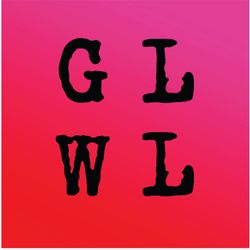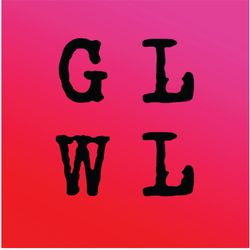Share

Getting Lit With Linda
Biographer's Regret - Alice Munro and the Autobiographer's Right
What do you want to know for? This is the question Linda considers as she writes her biography about Jane Rule - one that Nobel-Prize winning writer, Alice Munro, has considered many times as she weaves autobiography and fiction in her work, specifically in the book under discussion in this episode, The View from Castlerock. Linda discuses:
- Questions of biography (2.32, 19.00)
- Jane Rule (3.00)
- Alice Munro's autobiographical impulses (3.10, 6.33)
- Munro's Dear Life (4.30)
- Munro's The View from Castle Rock (5.08, 8.00, 9.32)
- Her story, "What Do You Want to Know For" (19.32)
In the Takeaway, Linda looks at Zoe Whittall's book, The Spectacular (published by HarperCollins) -- which it really is. She does consider the polarized reviews, and then suggests why it may be that some were positive and others not as much. Ultimately, she sees Whitall's book as falling within the tradition of the short story cycle, the very genre in which Munro specializes.
For more scholarship about celebrity autobiography and memoirs in Canada, check out Katja Lee's Limelight: Canadian Women and the Rise of Celebrity Autobiography (WLUP, shortlisted for the Gabrielle Roy Prize in 2020), or Lorraine York and Katia Lee's Celebrity Cultures in Canada (UTP 2016).
More episodes
View all episodes

76. A Ghost Story Without Ghosts: Jenny Haysom's Keep
37:41||Season 5, Ep. 76In this episode, Linda converses with Jenny Haysom (2.48) about her novel Keep (published by Anansi). Featuring three main characters, the narrative is driven by the conflict that emerges when Harriet, an elderly poet, is diagnosed with the onset of dementia and must face selling her house -- and the two home stagers, Eleanor and Jacob, tasked with emptying it of its contents. Both Eleanor and Jacob are drawn into Harriet's world and the questions around what we keep, what we throw away, and what we value and why. It becomes clear why Haysom refers to this Victorian-esque novel as "a ghost story without ghosts."The discussion also turns toward Haysom's literary debut as a poet and her collection Dividing the Wayside (4.15, published by Palimpsest Press) and the difference between writing poetry and writing novels (4.32).
75. Haunted by a Colonial Past - Michel Jean's Qimmik
24:05||Season 5, Ep. 75A bilingual episode/un épisode bilingue. Linda opens with her delight about having won the Women in Podcasting Awards in Education - she effusively thanks her listeners!eWhat kinds of books haunt us and why? In this episode, Linda considers Eden Robinson's Monkey Beach and Jessica Johns' Bad Cree, but ultimately picks a book that thoroughly haunted her - Michel Jean's Qimmik (published by Libre Expression, not yet translated into English). Author of Kukum (House of Anansi) and editor of Amun:A Gathering of Indigenous Voices, Jean addresses one of the legacies of a colonial past not frequently addressed. Set in Nunavik, the novel traverses two time periods--that are connected in ways that are completely unexpected and deeply moving.Quels types de livres nous hantent et pourquoi ? Dans cet épisode, Linda choisit un livre qui l'a profondément hantée : Qimmik de Michel Jean (publié par Libre Expression, pas encore traduit en anglais). Auteur de Kukum (House of Anansi) et rédacteur en chef d'Amun:A Gathering of Indigenous Voices, Michel Jean aborde l'un des héritages d'un passé colonial qui n'est pas souvent traité. Situé au Nunavik, le roman traverse deux périodes qui sont reliées de façon tout à fait inattendue et profondément émouvante.
74. What I Was Meant to Do - An Interview with Amanda Peters
34:19||Season 5, Ep. 74Linda opens with a word of thanks to her listeners who voted--because she is now a Finalist for the Women in Podcasting Awards. This episode features an interview, which was live at Word on the Street in Toronto, with the writer of Mi'kmaq and settler descent, who published a novel, The Berry Pickers and, most recently, her short story collection, Waiting for the Long Night Moon (both published by published by Random House). It is a joyful and animated conversation, with an audience that was warm and supportive.
73. An Unconventional Love Story in a Brat Summer: Corinna Chong’s Bad Land
32:57||Season 5, Ep. 73Linda speaks with Corinna Chong about her novel, Bad Land, published by Arsenal Pulp Press and long-listed for the Giller Prize. Chong, originally from Calgary, lives in Kelowna, B.C. where she teaches English and fine arts at Okanagan College. She published her first novel, Belinda's Rings, in 2013.In her opening remarks, Linda explains why she sees the protagonist and main narrator, Regina, as … well, kind of “brat.” She's a fascinating, messy, and lovable character who has buried her life--and the secrets around that life--in the home in which she and her brother, Ricky, were raised ... until he shows up with his daughter, Jez, with a new secret of their own. The tensions that are produced open wide the secrets by the novel's end, revealing both the beauty and violence that have haunted Regina for years. Other sources of discussion or references include:Henry James’ What Maisie Knew (14.45)Aristotle (16:10)Nabokov, Lolita (18.30)Sinclair Ross, As For Me and My House (18.30; 19:30)Unreliable narrators (18:50)the geode (and archeology (25:25)And a final reminder! Please vote for us in the Women's Podcasting Awards! Only a few days left!
72. Breathing Life into the Drowning Girls
41:13||Season 5, Ep. 72Linda considers the persistence of present-day misogyny, then speaks with Daniela Vlaskalic about her co-written play, The Drowning Girls, which features the women who were victims of a turn-of-the-century serial killer. It was such a famous case, even Agatha Christie mentioned it in one of her novels. To set the stage - pun intended - for this play, Linda outlines the legal and historical situation for women in Canada - obtaining the right to vote was a bare minimum., but even getting bank accounts and mortgages were an ordeal up until only a few decades ago. It's not so surprising that this history informs the present moment, when, for example, women still make less in terms of pay than men and disparaging remarks are being made about single women who have cats in the United States. (Linda is not afraid to mention that she has two cats - Pinky and Moe.) She also briefly alludes to women and legal matters, including her right to get a divorce.
71. Being Educated About Being Educated
25:27||Season 6, Ep. 71Linda has been mulling over what an education is, what purposes it serves. She was so curious about it that she begin to reflect on the etymology of the word. The root of “educate” comes from educe, from the Latin, meaning "to lead forth" or "lead out of," which then led her to think, leading out of … what? From where and to where? And who is doing the leading? For whom? And why? Weaving in her personal conversations and experiences alongside different cultural texts – from Valley of the Bird Tail to An Education to Tom Wayman’s “Did I Miss Anything?” – she ultimately focuses on M. NourbeSe Philip’s She Tries Her Tongue, Her Silence Softly Breaks to demonstrate the potential deleterious effects of an “education.” It is not always an innocent or innocuous process.Also in this episode – our first giveaway ever! We have a book to give away in honour of Indigenous History Month. The first person to write to Linda (gettinglitwithlinda@gmail.com) with the correct response to the question Linda poses in this episode will receive a copy of Willie Poll’s (Metis) My Little Ogichidaa in addition to a gift from Getting Lit With Linda.In the Takeaway, she notes that this episode is being released during Indigenous History Month, and so she recommends her listeners to visit the website, www.jelisautochtone.ca, which was produced by Dr. Colette Yellow Robe (member of the N. Cheyenne Nation in the USA), in addition to Cherie Dimaline's The Marrow Thieves.References:An Education, Scripted by Nick Hornby (3:55)Willie Poll, My LItle OchigidaaValley of The Bird Tail (4.40)Emily Carr, Klee Wyck (5.15)Clarke, Irwin’s expurgation of Klee Wyck (5:30)Residential schools (6.15)Re-education Camps, Vietnam (6:50)Kim Thuy, Ru Tom Wayman’s “Did I miss Anything?” (8:10)M, NourbeSe Philip, She Tries Her Tongue, Her Silence Softly Breaks (9.50; 13.10; 15.10 )Zong! (13:40)“Discourse on the Logic of Language” (16.50)Music: Raphael Krux (The Madness of Linda) and Brian Teoh (Finally See the Light)Assistant Producer: Marco Timpano
70. Intergenerational Power: Reclaiming Indigenous parenting
29:14||Season 5, Ep. 70Indigenous mothers, Indigenous children, Indigenous parents – Willie Poll sees you – and she wants you to know that you’re enough. In this episode of Getting Lit With Linda, Willie Poll (Metis Nation of Ontario) discusses with Linda why she wrote this children’s book, titled My Little Ogichidaa, and the source of inspiration for its creation – in large part, the Moose Hide Campaign (2:00). The Moose Hide Campaign, which began as a BC-born Indigenous-led grassroots movement to engage men and boys in ending violence towards women and children, has since grown into a nationwide movement of Indigenous and non-Indigenous Canadians from local communities, First Nations, governments, schools, colleges/universities, police forces and many other organizations – all committed to taking action to end this violence.Willie and Linda also discuss Willie's collaboration with illustrator, Hawlii Pichette, a Mushkego Cree (Treaty 9) urban mixed ancestry artist and illustrator who currently resides in London, Ontario. Linda asks her to explain the title for her book, which means "my little warrior" -- and how being a warrior is not necessarily incompatible with being loving.
69. Wishing Happy Anniversary / Birthday Wishes to The Geography of Pluto - An Interview with Christopher DiRaddo
37:28||Season 5, Ep. 69Linda begins this episode with a brief acknowledgement of the passing of Nobel Prize winner for the short story, Alice Munro – who died a couple of days before this episode was aired. It's a pertinent moment to take pause when the subject of this episode is, in part, about anniversaries - which often include remembering when a beloved person dies or, as was the case only a few days ago, honouring a special person - like mothers on Mothers' Day. Who we choose to so honour and how we do so says a great deal about us, not just the persons we are honouring.In this episode, Linda interview author Christopher DiRaddo about anniversaries, particularly the 10th one for his first novel, The Geography of Pluto, and his reading series (in Montreal), called The Violet Hour. Among other topics, they also discuss the following:family, role of and shape (11.40)Bronski Beat (16.50)His other book, The Family Wayauthor Licia Canton (19.10; 21.45) and her support for ChristopherMarisa Portolese's Goose Village (exhibit, 22.32)the titles and epigraphs of his novels (25.00), one from Le Petit Prince (27.30) and the other from a Kurt Vonnegut's Slaughterhouse-Five.And there is a Takeaway in this episode - appropriately (in view of our discussion about anniversaries and commemoration) referencing the Canada Post stamps that honour graphic novelists in Canada.
68. "Learning Gently" about Reconciliation: Andrew Stobo Sniderman & Douglas Sanderson's Valley of the Birdtail
01:03:21||Season 5, Ep. 68In this -- the second live episode of Getting Lit With Linda held at the Blue Metropolis Literary Festival and co-sponsored by the Quebec Writers' Federation -- Linda speaks with Andrew Stobo Sniderman and Douglas Sanderson (Amo Binashi, Beaver Clan, of the Opaskwayak Cree Nation) about their book, Valley of the Birdtail: An Indian Reserve, A White Town, and the Road to Reconciliation. The book has been receiving all manner of recognition. Here are some examples of the awards it has garnered:Winner – 2023 Stubbendieck Great Plains Distinguished Book Prize Winner – 2023 John W. Dafoe Book PrizeWinner – 2023 High Plains Book Award for Indigenous WriterWinner – 2022 Manitoba Historical Society Margaret McWilliams Book Award for Local HistoryWinner – 2023 Quebec Writers’ Federation Mavis Gallant Prize for Non-Fiction and Concordia University First Book Prize.And deservedly so. In this interview, Douglas and Andrew explain how and why we have arrived at the present moment and how there is hope for finding the pathway toward meaningful reconciliation.